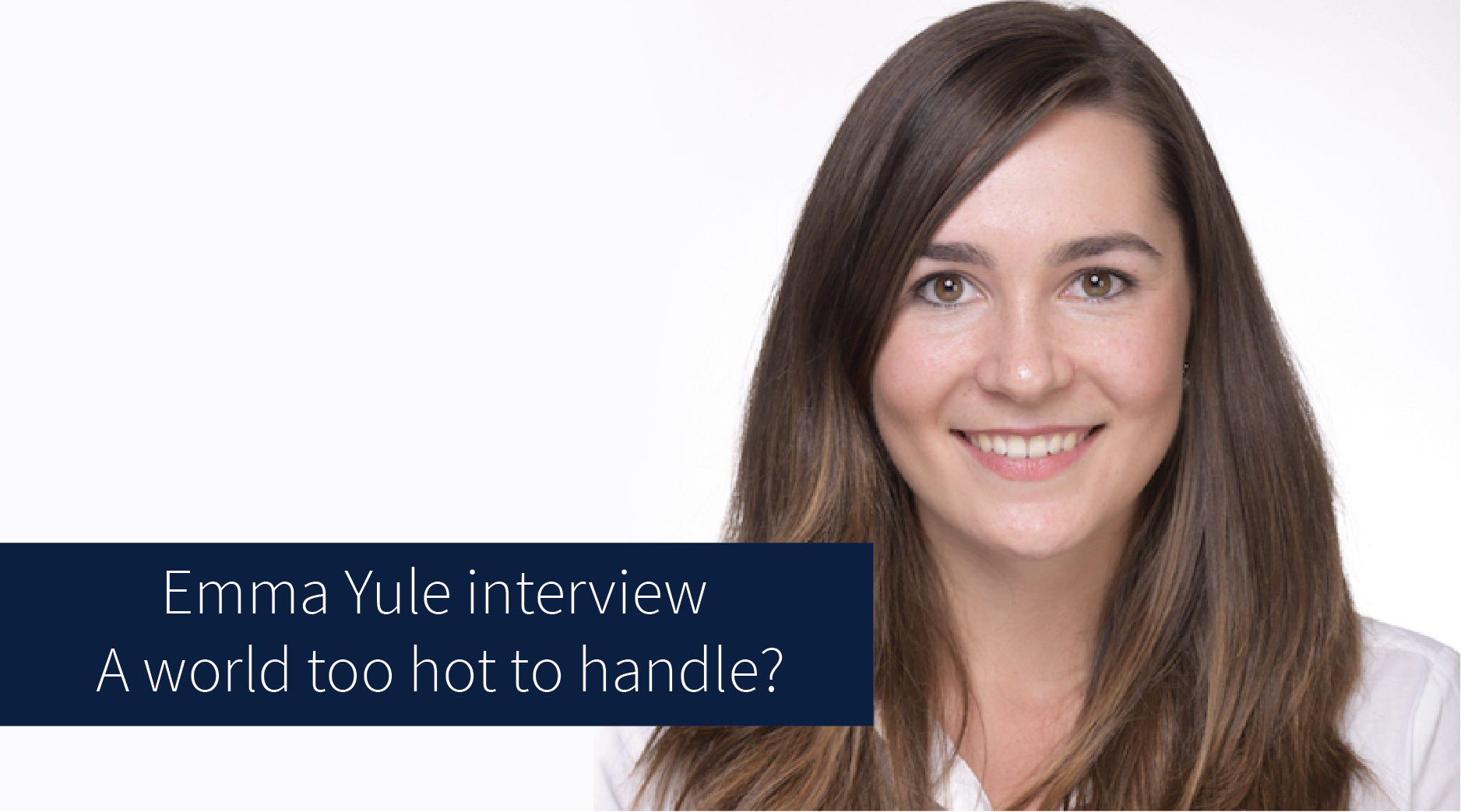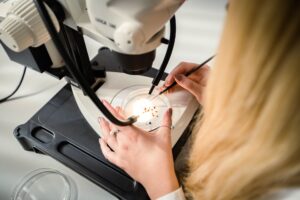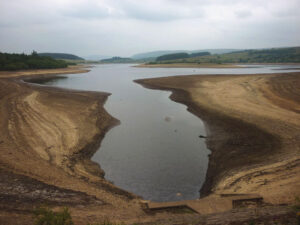Emma Yule interview: A world too hot to handle?

As part of their MSc in Science Communication and Public Engagement and in light of Glasgow hosting COP 26, MSc Science Communication students, Beth Bryan, Megan Glatzel, Katie Smith, and Li Zhang, sought to produce case studies highlighting the work of early-career academics researching extreme weather and future climate risks.
 Imagine if the 2018 heatwave that swept across the UK became the norm. That year’s record temperatures caused concerns over human health and food prices. The heatwave put added strain on the NHS as more people visited the A&E with conditions like dehydration, heart failure, and liver problems, all of which can be partially attributed to the high temperatures. In addition, the heat caused drought and crop failure, leading to increases in food prices. As the climate continues to warm, the world is likely to see an increase in these types of extreme weather events.
Imagine if the 2018 heatwave that swept across the UK became the norm. That year’s record temperatures caused concerns over human health and food prices. The heatwave put added strain on the NHS as more people visited the A&E with conditions like dehydration, heart failure, and liver problems, all of which can be partially attributed to the high temperatures. In addition, the heat caused drought and crop failure, leading to increases in food prices. As the climate continues to warm, the world is likely to see an increase in these types of extreme weather events.
Emma Yule, a second-year PhD student in Atmospheric and Environmental Sciences, is studying the mechanisms and impacts of extreme events, like the 2018 heatwave, and how an understanding of extreme events can inform risk management in the future. Below, Yule discusses her background, research and how she hopes her work will make an impact.
Heatwave blamed for record A&E attendances in England
Food prices ‘to rise 5%’ because of extreme weather
Can you tell us a little bit about your research?
My research focuses on extreme events, such as heatwaves. I am currently working on identifying and analyzing past heatwaves from the last 200 years of data, mainly in Europe. I am planning to use this information to model what future heatwaves may look like in a warmer world, under different climate change scenarios or different levels of warming.
The second part of my research focuses on how we can best communicate the risks of extreme events to increase resilience. My work involves understanding how different organisations approach and manage risk related to extreme events.
How did you become interested in this topic?
Throughout my science undergraduate degree and my master’s degree in management, I learnt about both the science and causes of climate change and what potential solutions we have to avoid the worst impacts of it. I began to see climate change as the key challenge of our generation. Also, in terms of science and technology, economics, and social science I was interested in asking what the future may look like and how we can build a resilient, fair and just society. I have worked both in project management and for a non-governmental organisation (NGO) working on sustainability and climate change, which got me interested in the research side of things.
I think extreme events and how they may change in the future is critical to building a sustainable and fair society and so was very interested in researching the topic in more detail. I think I’ve always been interested in the connections between science, business, and policy and that’s what has led me to pursue the links between these different areas. I’m interested in understanding the impacts that society has and how we’ve built the technology, business and organisations that have led us to the climate situation we are in. Discovering ways to combine science and business strategy or policy to create solutions both at a wider and a local level fascinates me.
Why did you choose to get your PhD at the University of Edinburgh?
 Edinburgh has always felt like home to me even after living and working in several, different locations. I completed my undergraduate here and so I’m also familiar with the University. I knew I wanted to do a PhD that was interdisciplinary, so I could look at both the science and how it can be applied, and the topic of extreme events was so interesting to me. I sit in the School of Geosciences where there are people working on all different topics who I have the pleasure of meeting and discussing ideas and a supportive research team. Having that diversity makes it easier to bring together all those different areas of research in my own work.
Edinburgh has always felt like home to me even after living and working in several, different locations. I completed my undergraduate here and so I’m also familiar with the University. I knew I wanted to do a PhD that was interdisciplinary, so I could look at both the science and how it can be applied, and the topic of extreme events was so interesting to me. I sit in the School of Geosciences where there are people working on all different topics who I have the pleasure of meeting and discussing ideas and a supportive research team. Having that diversity makes it easier to bring together all those different areas of research in my own work.
I’m also really interested in tutoring and teaching. Again, because Geosciences covers such a broad array of topics, I am able to tutor on both physical science and social science or business and sustainability courses bringing in the knowledge and experience gained from my master’s degrees and my career prior to starting the PhD. I like that I can use everything I’ve learned in my master’s programmes in teaching at Edinburgh, I think it would be harder to have that spread at other universities.
How do you see your research having an impact beyond academia?
I am hoping my work can help induce conversations about what we mean when we talk about risk and increasing resilience to extreme events such as heatwaves. I hope I can add to the scientific literature on past and future heatwaves, how we define them and their mechanisms and impacts. I hope to take my findings from studying past heatwaves and their impacts and use that to better inform risk management in the future. I am still early on in my PhD and working through how regional my work will be, but overall I hope it helps to build a general strategy to bring the predicted impacts of extreme weather events into risk management.
Go further
- Find out about the University as a Living Lab
- COP 26 resources, including summaries of research and action
- Read more interview blog posts with academics






Recent comments